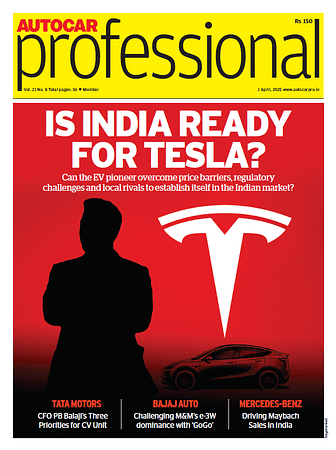India needs to develop an electric public transport system: Nitin Gadkari
The Minister for Road Transport & Highways makes a pitch for developing an emission-free public transport system at the India e-Mobility Conclave 2020.
The electric vehicle industry has received another vote of confidence from the government, this time for the public transport sector.
Speaking at the India e-Mobility Conclave 2020 today, Nitin Gadkari, Minister for Road Transport & Highways, Minister of Shipping, and the Minister of Micro, Small and Medium Enterprises, government of India, said: “India is power surplus so the benefits of e-mobility solutions is very much in the interest of the country. There is a strong need to develop an import substituting, cost-effective, indigenous, and pollution-free sustainable transportation system in the country and one of the most important solutions is public transport on electricity.”
“At present, we are electric surplus and we are planning to generate through solar energy. We have tremendous potential through hydropower and also wind power, so power is not a problem. Power is an alternative which is very cheap. We are also making hydrogen fuel cell technology in this country and now the idea is to make hydrogen fuel cells from biomass. These are the different types of technology available and we must move to those which are indigenous, and we do not need imports.”
In his keynote address, Anil Srivastava, Mission Director, National Mission for Transformative Mobility & Battery Storage in NITI Aayog, said: “Battery and EVs will disrupt the Indian scenario. E-mobility will be impacted by the pandemic and the demand for electric two-wheelers as also petrol two-wheelers has picked up because people have realised that this is going to be the new normal. In that perspective the demand is going up. We have taken steps to improve EV demand. The Ministry of Power and Department of Heavy Industries is working on how to push electric two-wheelers and is exploring a model that will separate the cost of vehicle from the source of its energy – the battery. If we separate the EV from the battery, the upfront cost will be less; we are encouraging a model where the battery can be separated, be it leasing and/or swapping.”
Dr Rahul Walawalkar, President, India Energy Storage Alliance (IESA) commented: “Commercial fleets are rapidly adopting electric mobility across the two-, three- and four-wheeler segments. We need to focus on right deployment of charging infrastructure to make it easy for users to switch to EVs. With the upcoming advanced chemistry cell battery manufacturing mission of 50 GWh, we are confident that India can develop a robust eco-system for R&D and manufacturing of advanced battery and EV technologies. India Energy Storage Alliance with its partnership with Energy Efficiency Services is looking to play a role in accelerating faster adoption of EVs through the launch of an EV Adopter Club.”
RELATED ARTICLES
Rajiv Bajaj reappointed MD and CEO of Bajaj Auto for five-year term
Bajaj Auto’s Board of Directors has approved the re-appointment of Rajiv Bajaj as the company’s MD and CEO for another f...
JSW MG Motor launches Comet EV Blackstorm edition
The key highlights of the Comet EV Blackstorm, which is now the top-end variant, are its ‘Starry Black’ exterior along w...
Maruti Suzuki begins production at new Kharkhoda plant
Phase 1 of the Kharkhoda plant will have an annual production capacity of 250,000 units and produce the Brezza compact S...






 By Autocar Professional Bureau
By Autocar Professional Bureau
 06 Aug 2020
06 Aug 2020
 8688 Views
8688 Views








 Ajit Dalvi
Ajit Dalvi

